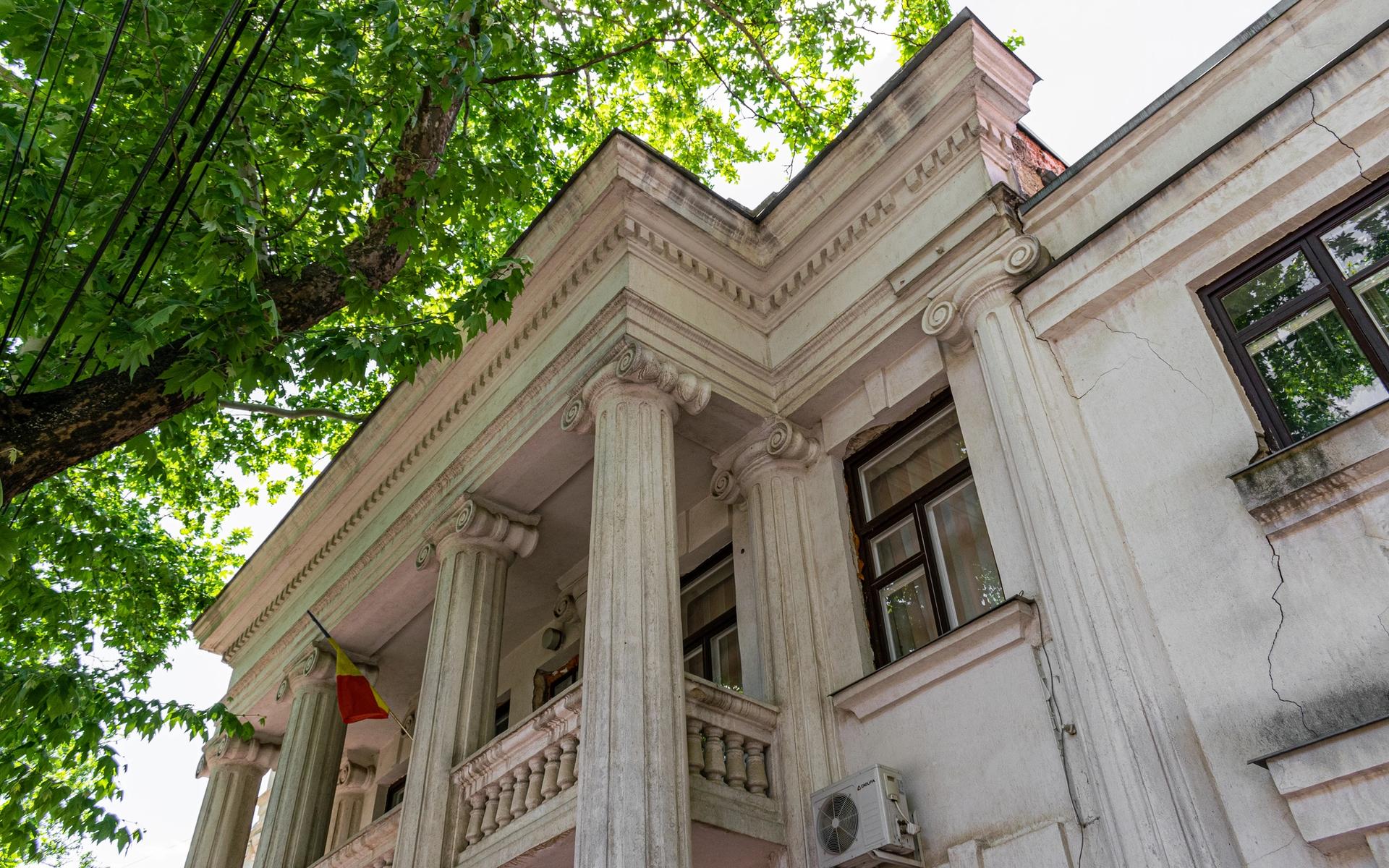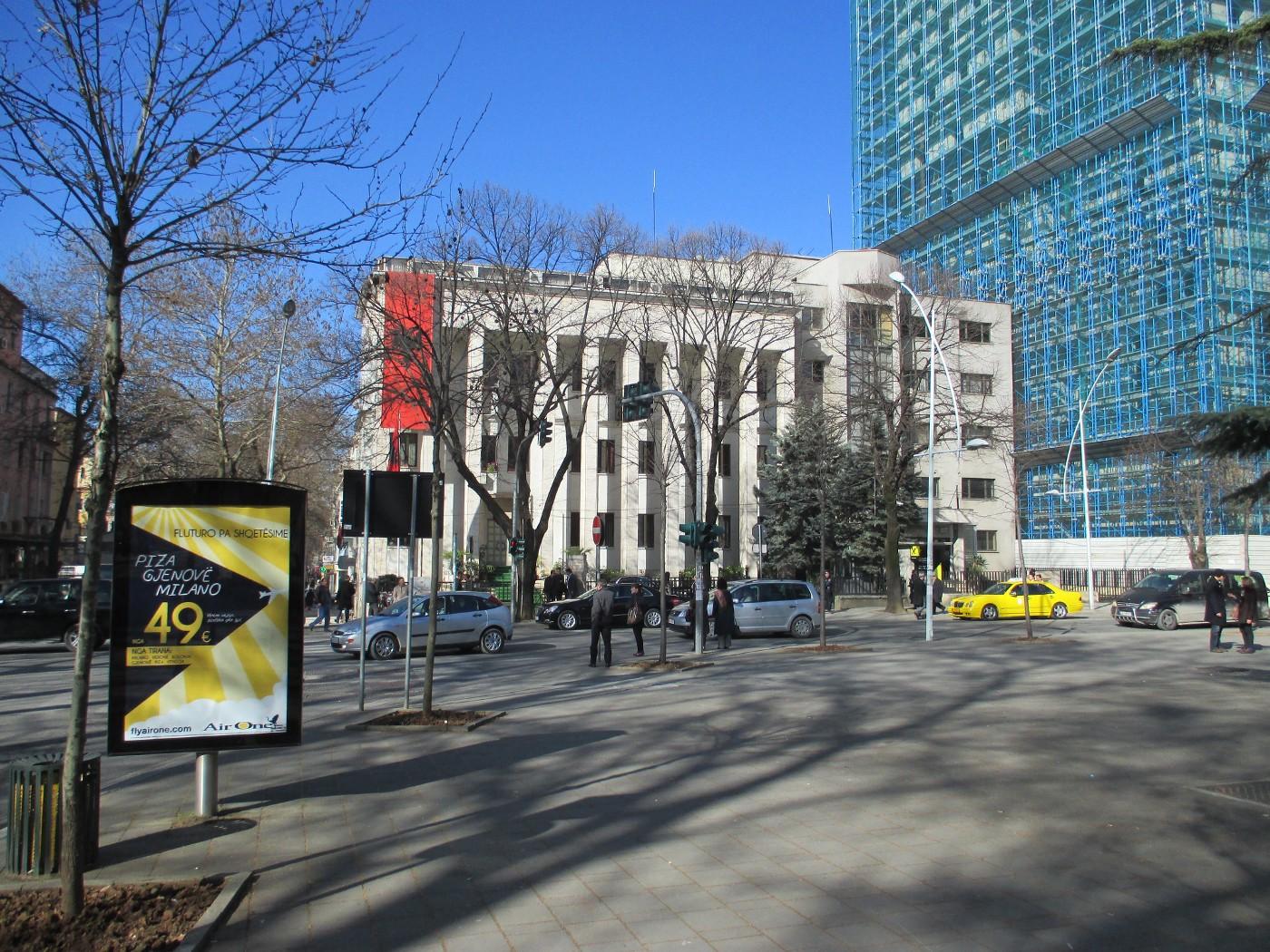Blog
The inertia of the Moldovan judicial system: slow progress towards independent judges

Moldova’s judicial system is increasingly well protected in law, but outdated structures and corrupt practices mean true independence for judges is a long way off.
In its recent Resolution 2357 (2021), the Parliamentary Assembly of the Council of Europe (PACE) expressed its concern that Moldova shows a
“… slow pace of the reform of the judiciary … in particular, insufficient progress made in the field of corruption prevention in respect of members of parliament, judges and prosecutors…. [PACE urges Moldova] to adopt the expected legal and constitutional amendments, in line with the recommendations of the Venice Commission; to improve the independence, accountability and efficiency of the judiciary”.
The independence of judges has been a priority on the reform agenda of all Moldovan governments since 2009. Robust and comprehensive legislation has been enacted to guarantee judges are independent, impartial, immovable and are subordinate only to the law. For example:
- Judges’ wages were considerably increased.
- The Superior Council of Magistracy (SCM), a regulatory and oversight body for the judicial system, was partially reformed and capacitated.
- A new evaluation system was introduced, to appraise judges’ performance.
- A new system of disciplinary liability was institutionalised.
- A new IT system was introduced, to integrate mandatory random allocation of cases into the courts’ routines, and thereby prevent corruption.
- Third-party communication with judges was prohibited.
- Technical support (eg, with computers or IT systems) was made available to judges.
- Government funding for the justice sector increased by 170% between 2010 and 2015.
- The newly created National Integrity Authority assesses possible judicial conflicts of interest, incompatibilities, personal interests, income and property, among other things.
Despite these efforts, serious allegations of corruption, vested interests, ethical issues and lack of transparency in the judicial system continue to be made by the Moldovan public, independent media and civil society. Public trust in judges is low (65% of Moldovans did not trust the judiciary in 2019) and various development partners have voiced concerns about selective justice, and judges’ lack of independence and integrity.
Legislative amendments are generally in line with international best practices. However, their implementation is undermined by an alarming lack of political commitment to allowing justice to be independent. This results in questionable court decisions and corruption (which, in turn, leads to high-profile corruption cases).
Vetting judges: a possible solution to corruption?
Maia Sandu won a landslide victory in the presidential elections of November 2020, thanks in part to her anti-corruption message. She has a strong record on the issue: during her 2019 term as prime minister Sandu’s government introduced a draft law for the external evaluation of judges at the Supreme Court of Justice. The law did not reach parliament but the government’s reformist intentions caused a serious panic within the judiciary. Now, as part of her agenda as president, Sandu aims to keep good, independent judges within the system, and remove those who are compromised. The administration appears to view vetting (that is, external evaluation) of judges as the only effective solution. The proposed vetting model in Moldova would probably follow the one used in Albania, which was assessed favorably in a recent case at the European Court of Human Rights.
An evaluation mechanism is already in place in Moldova, managed by the SCM, but the main argument against it is that it has proved ineffective in overcoming vested interests, disregarding honest judges with good evaluation grades and promoting judges with integrity issues. Codes of ethics, judges’ professional reputations and the Bangalore principles are not taken into consideration when it comes to judges’ promotion or evaluation.
Recently the SCM declared that the judiciary prefers an improved internal evaluation system to externally executed vetting: extended powers for the SCM’s Evaluation Committee; increased salaries for judges; and legislative improvement for the National Integrity Agency, National Anti-Corruption Center and National Intelligence Agency, could all help the process to be more efficient. Such changes would help to retain the goodwill of the SCM, but whether they would do enough to raise public trust in the judiciary remains to be seen.
Judges view the problem differently
On the other hand, voices from within the system claim that the lack of independence is explained by current legal ‘professional’ obstacles founded on (a) article 307 of the Criminal Code, which prescribes “criminal liability of judges in case of deliberate ruling of a sentence, decision, conclusion or judgment contrary to the law”, and (b) the 5-year ‘probationary’ term in office before a judge’s permanent appointment.
Judges admit, informally, that these are threatening tools, used by the ‘system itself’ (administratively) and by ‘outsiders’ (political interference, corruption or prosecutors’ intimidation), to influence judges and manipulate their independence (the Manole case being a powerful demonstration of political interference).
The judiciary is changing, but old patterns persist
Around 40% of Moldova’s 410 judges have been replaced through ‘natural wastage’ since 2014 (ie, in the usual course of retirement and appointment). The system has new people trained in new curricula and standards at the National Institute of Justice (NIJ). Legal practitioners can no longer become judges without first passing the NIJ’s verbal and electronic exams and integrity polygraph verification by the National Anti-Corruption Center (although, in practice, it is not clear if this verification is carried out for every applicant). Therefore, new judges are expected to be the change-agents and the new face of an independent, transparent, impartial, and accountable judiciary.
Despite these changes, no major improvements can be found in either the functioning or reliability of the judiciary. One possible reason is that the judicial administration is very hierarchical, in spite of a ruling of the Constitutional Court in 2016, clarifying that:
“the independence of judges excludes any notion of hierarchy, subordination, having the role to settle the litigations in an objective way, in accordance with the law and being a power, the judges may not receive orders, instructions or suggestions regarding their judiciary activity nor from the inside or outside the judiciary system”.
The hierarchical structure means that younger judges see the 5-year ‘probationary’ term as an obstacle to their independence. This has created an environment in which judges who seek to uphold judicial independence are afraid of the consequences of doing so.
There is a systemic hierarchical control over every judge’s career, both inside and outside of the court. To get positive feedback and references from the head of the courts – for an evaluation or tenure – a judge is pressured to become part of the system, to follow the informal rules and accept the status quo (including the inefficiency of the SCM). If a judge is courageous enough to criticise openly the way the judiciary is managed, including by the SCM, they will not have the support of their peers when applying for a position with the SCM, and they risk being ‘blacklisted’ when applying for promotion or tenure. A delegation of the International Commission of Jurists was presented in 2019 with witness statements and stories of judges living in fear:
“to express their opinions on the situation of the judiciary; fear of criminal prosecution for issuing a decision contrary to the desiderata of the prosecutor’s office or the people in power; fear of dismissal proceedings or ruining their career for expressing their views in disagreement with the judicial nomenklatura and the hierarchy that exists in practice, even if abolished in law”.
Moldova prides itself on having relatively modern legislation, guarantees of constitutional independence and public support for reforms, but it also lacks a proper understanding of what an independent judiciary means in practice.
The Moldovan judiciary is reluctant to reform itself but could be part of the solution
Unfortunately, the soviet-style management and hierarchical institutional values and structures of the Moldovan court system still influence the way even young professionals think and act. Preaching ethics will not create real change – not while unscrupulous actors hold undeclared or unexplained assets, and while they will act in desperation to preserve their careers amid constant political turbulence.
It is obvious that without a clear desire from within the system – to excel; to act independently; to ‘clean house’ and resolve its own affairs – no reform interventions can be sustainable, and will not lead to greater independence for judges.
The Moldovan judges’ community itself could choose to be part of the solution. For example, electing new, honest members of the Superior Council of Magistracy during the upcoming 2021 General Assembly meeting could give momentum to the changes that are needed, and show a real desire to reform the ‘caste’ from within.
With independent judges in the SCM, the system can change its dubious current practices; strongly advocate for constitutional amendments to cancel the 5-year ‘probationary’ term and article article 307 of the Criminal Code; apply the law to properly evaluate judges and promote the best; improve the work of Judicial Inspection; and change the management culture and enforce the Code of Ethics.
Disclaimer
All views in this text are the author(s)’, and may differ from the U4 partner agencies’ policies.
This work is licenced under a Creative Commons Attribution-NonCommercial-NoDerivatives 4.0 International licence (CC BY-NC-ND 4.0)


